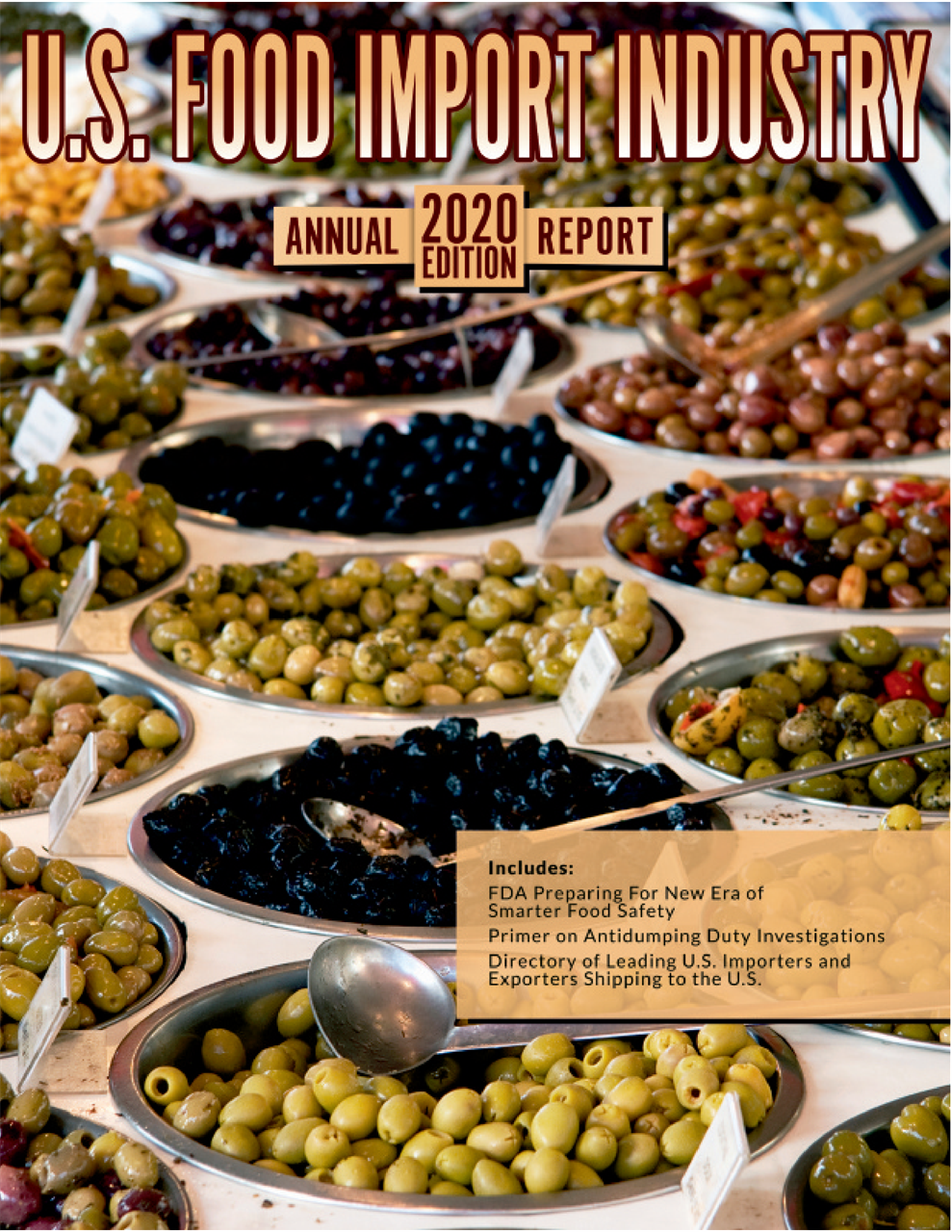2020: Cannabidiol --
|
2020 U.S. Food Import Industry Annual ReportChairman's Report - James Libby President's Report - Bob Bauer North American Olive Oil Association - Gabriel Estevez Processed Foods - Josh Gellert Nut & Agricultural Products - Diana Thompson National Honey Packers & Dealers - Greg Olsen Regulatory and Trade IssuesCannabidiol: Looking Back and Forward - Tish E. Pahl, Esq. FDA Preparing for a New Era of Smarter Food Safety 2020s: A New Decade Where Education Meets Enforcement - Paul K. Jeka Trump Economic Policy As It Relates to the Global Economy CBP Looking to Work Closer with Trade A Look at the New NAFTA-USMCA - Nicole Biven Collinson Some Things Exporters Should Know About US Antidumping Law and Practice Managing Uncertainty in Volatile Times - Louis J. Biscotti |



